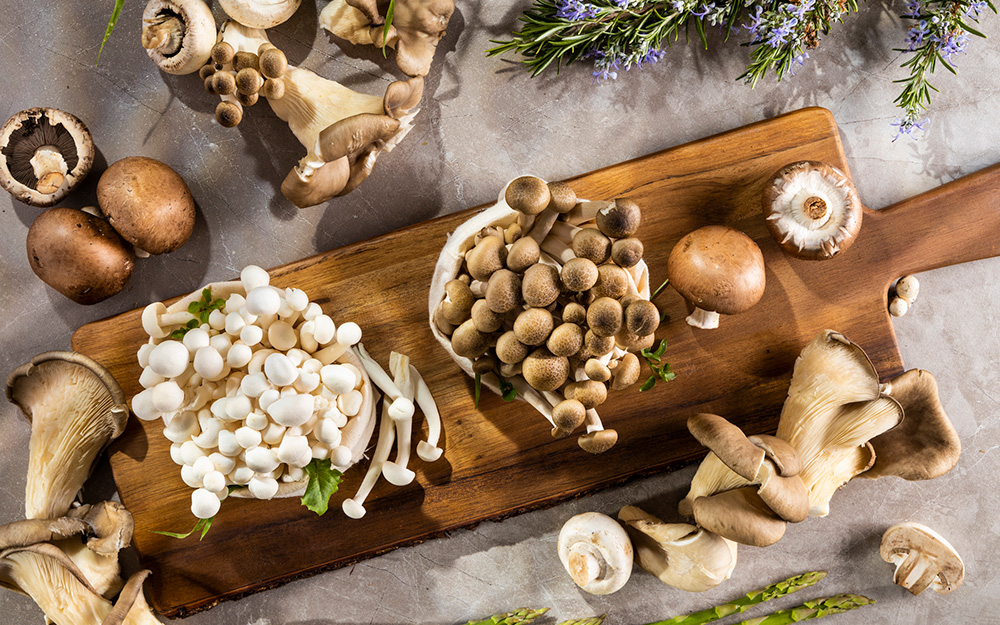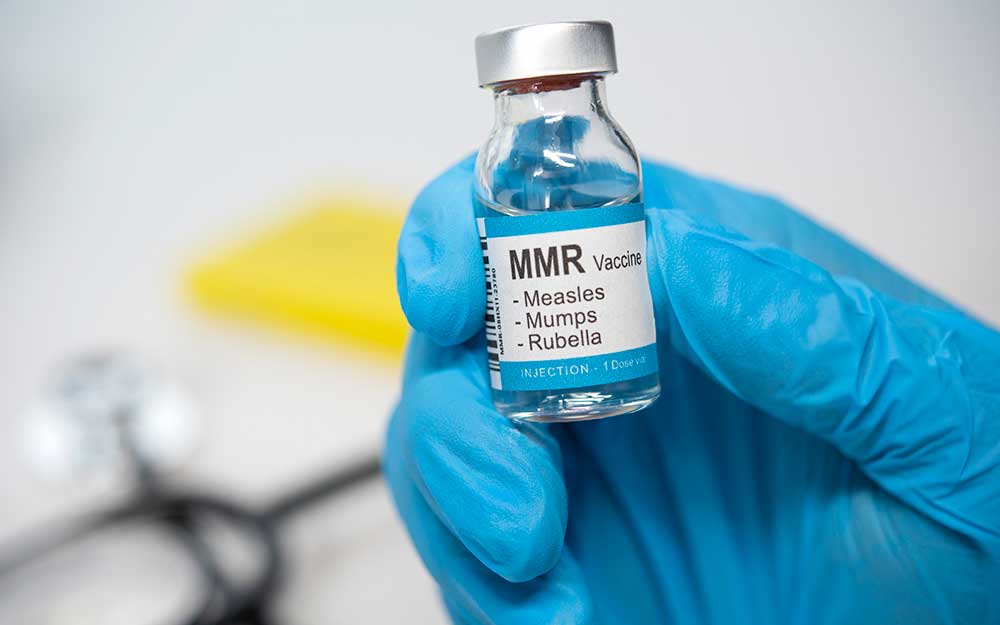Five Health Benefits of Mushrooms
Date
December 6, 2024

Date
December 6, 2024
Credits
Medical providers featured in this article

In Brief
{{cta-block}}
With more than 2,000 edible species to choose from, mushrooms offer a vast array of health benefits.
“Mushrooms are versatile, nutrient-dense and low in calories,” said Cedars-Sinai cancer dietitian Meghan Laszlo, RD. “They not only bring a savory flavor to meals, but they also come with unique nutrient properties.”
{{providers}}
Five Health Benefits of Mushrooms
No matter which species you choose, edible mushrooms are nutrient powerhouses. Loaded with health-boosting vitamins, minerals and antioxidants, mushrooms can enhance your health in the following ways:
1. Ward off cancer
Studies show eating 1 to 2 cups of mushrooms each week may reduce your risk of cancer by up to 45%. In Japan, patients may even receive a reishi mushroom-based drug as part of cancer treatment. “Mushrooms are a rich source of two powerful antioxidants—glutathione and ergothioneine—which help shield cells from damage and support immune function,” said Laszlo. “Ergothioneine may also help mitigate some of the chronic diseases associated with aging, which is why some researchers call it the ‘longevity nutrient.’”
Quick tip: Mushrooms vary in ergothioneine content—with shitake, oyster and maitake offering the most boost—but eating mushrooms of any type may help reduce cancer risk.
2. Bolster your brain
The antioxidants and B vitamins in mushrooms help support neurotransmitter function. Studies suggest eating 2 cups of mushrooms each week can cut the risk of developing cognitive impairment in half. Other research suggests mushrooms may help protect against neurodegenerative diseases such as Alzheimer’s disease and Parkinson’s disease.
Quick tip: Exotic mushroom varieties such as Cordyceps, Turkey tail and Lion’s mane may have extra brain-boosting benefits due to their higher bioactive nutrient content, but they can be hard to find. Your best bet: Buy these mushrooms dried and rehydrate them in warm water before incorporating them into soups, risotto and casseroles.
“Mushrooms are versatile, nutrient-dense and low in calories. They not only bring a savory flavor to meals, but they also come with unique nutrient properties.”
3. Protect your heart
Rich in potassium, low in sodium and loaded with heart-healthy compounds, mushrooms help prevent plaque buildup on arterial walls. Varieties such as shitake, maitake and reishi also contain beta-glucans, a type of prebiotic fiber associated with lower cholesterol and blood pressure levels and reduced inflammation.
Quick tip: To maximize flavor and nutrients and reduce sodium, fat and calories, substitute half of the ground beef in recipes with chopped mushrooms.
4. Boost immune defenses
“With antioxidants like selenium (which helps protect cells against damage) and vitamin B6 (which helps form red blood cells), mushrooms are also one of only a few food sources that are naturally rich in immune-boosting vitamin D,” said Cindy Wong, a registered dietitian at Cedars-Sinai. Certain varieties contain ergosterol, a compound that transforms into vitamin D when exposed to sunlight.
Quick tip: Let your mushrooms sit in the sun for 15 minutes before cooking. Varieties including white button, portabella and cremini can synthesize the hard-to-get nutrient just like humans.
5. Promote a healthy gut
Your gut is home to billions of bacteria. “Mushrooms are not only rich in fiber, but they also contain polysaccharides, which are linked to improved insulin resistance and GI health,” said Wong. “These polysaccharides stimulate the growth of healthy bacteria and suppress harmful bacteria.” Unlike other foods, which break down with stomach acid, the polysaccharides in mushrooms pass through the gut to the colon, encouraging good bacteria to grow along the way.
Quick tip: Cook your mushrooms with a bit of olive oil, avocado oil or even butter. Since vitamin D is fat-soluble, you’ll absorb more of the nutrient when it’s mixed with a fat source.
While there are a slew of mushroom supplements, powders and tinctures on the market, Laszlo recommends adopting a “food first” philosophy.
“Unfortunately, you don’t know what you’re getting in supplement form since the industry is largely unregulated,” Laszlo said.
Cooking With Mushrooms
Mushrooms play a starring role in myriad dishes—and since many varieties are available year-round, you have plenty of opportunities to boost the nutrient content in your meals.
Some mushrooms have a rich, umami flavor, making them an ideal meat substitute. Others have a delicate earthy flavor. There are even mushroom varieties, including the aptly named oyster mushroom, that have an oceanic, briny taste.
No matter which variety you choose, make sure to purchase rather than forage your mushrooms because several mushroom types can be deadly. Avoid submerging them in water, Laszlo cautioned, to prevent them from getting water-logged.
“Instead, give them a quick rinse to remove any visible dirt, or brush them with a damp cloth or scrub brush,” she said.
Then get creative. Simmer mushrooms in a pot of water for five minutes, sauté them in a hot skillet with some olive oil, or grill or bake large varieties like portabellas for sandwiches and “burgers.”
You can also add mushrooms to pizza, pasta, soups and stir-fries, or mix chopped mushrooms into egg dishes, such as frittatas, omelets and quiche.
“The opportunities for cooking with mushrooms are seemingly limitless,” Laszlo said.





